| No Protection | ||||
|---|---|---|---|---|
 | ||||
| Remix album by | ||||
| Released | 17 February 1995 | |||
| Recorded | 1994 | |||
| Genre | ||||
| Length | 49:57 | |||
| Massive Attack chronology | ||||
| ||||
No Protection is a 1995 dub remix of Massive Attack's second album Protection by the British dub producer Mad Professor.
| No Protection | ||||
|---|---|---|---|---|
 | ||||
| Remix album by | ||||
| Released | 17 February 1995 | |||
| Recorded | 1994 | |||
| Genre | ||||
| Length | 49:57 | |||
| Massive Attack chronology | ||||
| ||||
No Protection is a 1995 dub remix of Massive Attack's second album Protection by the British dub producer Mad Professor.
Mad Professor was contacted by Massive Attack after Protection was released to remix a song for a single. After the single was remixed, the band asked Mad Professor to listen to more of the album to explore the possibility of further remixes. The project then became a track by track remix of almost the entire album. Mad Professor heavily edited the original material to form a slow, pulsating mix in which the beat is emphasised, reverb is extensively used and the occasional vocals (many of the tracks are almost entirely instrumental) fade in-and-out in typical dub fashion. [1]
| Review scores | |
|---|---|
| Source | Rating |
| AllMusic | |
| The Guardian | |
| Rolling Stone | |
| Select | 4/5 [5] |
| The Village Voice | A− [6] |
According to music journalist Robert Christgau, No Protection was the most ballyhooed album during dub music's revival in the mid-1990s and In his review for The Village Voice , he found the music well defined and textured: "It also sustains a convincing gravity—a sense that all these whooshings and clangings and suckings and scrapings and boomings and snatches of tune relate to each other and the rest of the physical universe." [6]

Massive Attack are an English trip hop collective formed in 1988 in Bristol by Robert "3D" Del Naja, Adrian "Tricky" Thaws, Andrew "Mushroom" Vowles and Grant "Daddy G" Marshall.
Dub is an electronic musical style that grew out of reggae in the late 1960s and early 1970s. It is commonly considered a subgenre of reggae, though it has developed to extend beyond that style. Generally, dub consists of remixes of existing recordings created by significantly manipulating the original, usually through the removal of vocal parts, emphasis of the rhythm section, the application of studio effects such as echo and reverb, and the occasional dubbing of vocal or instrumental snippets from the original version or other works.

Raw Power is the third studio album by American rock band the Stooges, released on February 7, 1973 by Columbia Records. The album departed from the "groove-ridden, feel-based songs" of the band's first two records in favor of a more anthemic hard rock approach inspired by new guitarist James Williamson, who co-wrote the album's eight songs with singer Iggy Pop. Pop produced the recording sessions himself and David Bowie assisted with post-production work, though the team were allotted only one day to mix the album and the resulting fidelity was poor. Later reissues have attempted to either correct or enhance the original mix, most notably Pop's 1997 remix which became notorious for its extreme volume and compression.

Substance is a compilation album by English alternative dance band New Order. It was released in August 1987 by Factory Records. The album compiles all of the band's singles at that point in their 12-inch versions, along with their respective B-side tracks. The then-newly released non-album single "True Faith" is also featured, along with its B-side "1963" and new versions of "Temptation" and "Confusion".
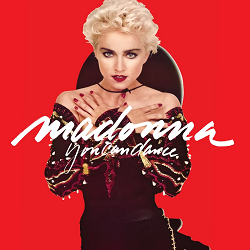
You Can Dance is the first remix album by American singer and songwriter Madonna. It was released on November 17, 1987, by Sire Records. The album contains remixes of tracks from her first three studio albums—Madonna (1983), Like a Virgin (1984) and True Blue (1986)—and a new track, "Spotlight". In the 1980s, remixing was still a new concept. The mixes on You Can Dance exhibited a number of typical mixing techniques. Instrumental passages were lengthened to increase the time for dancing and vocal phrases were repeated and subjected to multiple echoes. The album cover denoted Madonna's continuous fascination with Hispanic culture.

Protection is the second studio album by English electronic music group Massive Attack, released on 26 September 1994 by Wild Bunch Records and Circa. DJ Mad Professor remixed the album in 1995 under the name No Protection.
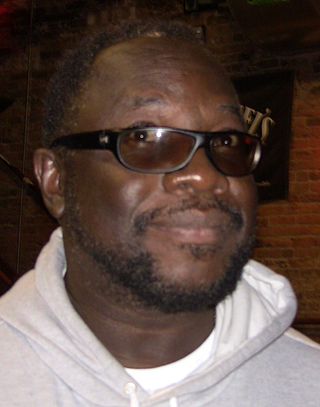
Neil Joseph Stephen Fraser known by his stage-name Mad Professor, is a Guyanese-born British dub music producer and engineer known for his original productions and remix work. He is considered one of the leading producers of dub music's second generation and was instrumental in transitioning dub into the digital age. He has collaborated with reggae artists such as Lee "Scratch" Perry, Sly and Robbie, Pato Banton, Jah Shaka and Horace Andy, as well as artists outside the realm of traditional reggae and dub, such as Sade, Massive Attack, The Orb, Gaudi, the Brazilian DJ Marcelinho da Lua, Grace Jones, and Perry Farrell.
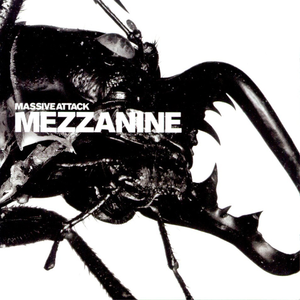
Mezzanine is the third studio album by English electronic music group Massive Attack, released on 20 April 1998 by Circa and Virgin Records. For the album, the group began to explore a darker aesthetic, and focused on a more atmospheric style influenced by British post-punk, industrial music, hip hop and dub music.

"There's Got to Be a Way" is a song recorded by American recording artist Mariah Carey for her eponymous debut studio album (1990). Columbia Records released it as the fifth and final single from the album in the United Kingdom and several European countries on May 20, 1991. The song became a minor hit in the UK as well as becoming a minor hit in many European countries. A five-track digital extended play containing remixes of the song was released in July 2020 as part of the 30th-anniversary celebrations of her debut album.

Everything Is Wrong is the third studio album by American electronica musician Moby, released on March 14, 1995, by record labels Mute in the United Kingdom and Elektra in the United States. It was released with a limited-edition bonus disc of ambient music titled Underwater.
Shara Nelson is an English singer and songwriter. She worked with Massive Attack in the early 1990s, and as a solo artist had five UK top 40 hit singles. Her 1993 debut album, What Silence Knows, was shortlisted for the Mercury Music Prize.
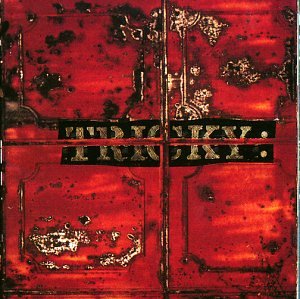
Maxinquaye is the debut album by English rapper and producer Tricky, released on 20 February 1995 by 4th & B'way Records, a subsidiary of Island Records. In the years leading up to the album, Tricky had grown frustrated with his limited role in the musical group Massive Attack and wanted to pursue an independent project. Shortly after, he met with vocalist Martina Topley-Bird, who he felt would offer a wider vision to his music, and signed a solo contract with 4th & B'way in 1993. Tricky recorded Maxinquaye the following year primarily at his home studio in London, with Topley-Bird serving as the album's main vocalist, while Alison Goldfrapp, Ragga and Mark Stewart performed additional vocals.
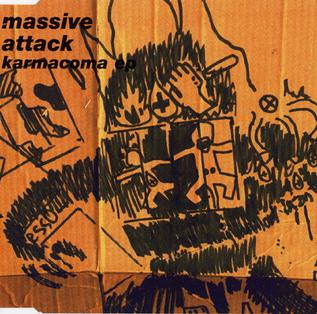
"Karmacoma" is a song by British trip hop collective Massive Attack, released as the third and final single from their second album, Protection, on 20 March 1995. It contains rap vocals from band members 3D and Tricky. Tricky also recorded his own version of "Karmacoma", renamed "Overcome" for his debut studio album, Maxinquaye.

The discography of British trip hop band Massive Attack consists of five studio albums, three compilations, five remix albums, one soundtrack, five EPs, eighteen singles, and twenty-seven music videos. The group was founded in 1988 by musicians Robert "3D" Del Naja, Adrian "Tricky" Thaws, Grantley "Daddy G" Marshall, and Andrew "Mushroom" Vowles in Bristol, England. Prior to this, all four were members of British sound system the Wild Bunch.

Singles 90/98 is a limited edition 11 disc compilation album by Massive Attack released in 1998. It features all their vinyl and CD singles collected until 1998 with B-sides and a host of remixes totalling 63 tracks.
"Heartbeat" is a 1981 dance single by Taana Gardner. It was arranged by Dennis Weeden and Kenton Nix, and released by West End Records, with the more famous club mix created by Larry Levan. It reached the Billboard R&B chart at No. 10 and the No. 6 on the dance chart. It has sold over 800,000 copies.

Daniele Gaudi, better known simply as Gaudi, is an Anglo-Italian musician, solo artist and record producer based in London, who specialises in dub music, electronica, reggae and worldbeat. His distinctive production sound appears in a number of albums nominated for Awards and prizes such as Grammy Award 2019 -Best Reggae Album Of The Year- for Mass Manipulation by Steel Pulse and BBC Radio 3 Awards for World Music 2008 for the album Dub Qawwali by Gaudi & Nusrat Fateh Ali Khan. His music works and contributions have topped international charts such as: Billboard Reggae Chart no.1 with the album Heavy Rain by Lee "Scratch" Perry, Billboard Reggae Chart no.1 with the album Mass Manipulation by Steel Pulse, Billboard Reggae Chart no.1 with the album Vessel of Love by Hollie Cook, Billboard Reggae Chart no.2 with "Rainford" by Lee "Scratch" Perry, UK Dance Chart no.1 with of "Jus' Come ".

Dubber Side of the Moon is the second dub reggae tribute to the Pink Floyd album, The Dark Side of the Moon, by New York–based band Easy Star All-Stars. The album features bass-heavy dub remixes by prominent dub producers of its predecessor, Easy Star Records' 2003 release Dub Side of the Moon. Dubber Side of the Moon debuted at #2 on the Billboard Reggae charts.

Panthalassa: The Music of Miles Davis 1969–1974 is a remix album by Miles Davis, released on February 16, 1998, by Sony Records. It contains compositions from prior albums, including In a Silent Way (1969), On the Corner (1972), and Get Up With It (1974), remixed by Bill Laswell; it is subtitled "Reconstruction and Mix Translation by Bill Laswell". The album was composed as a dark, continuous tone poem divided by four sections of Davis' jazz fusion recordings. Panthalassa received generally positive reviews from music critics and sold well, charting at number four on the Billboard Top Jazz Albums.

"Jump in the River" is a song recorded by Irish singer Sinéad O'Connor. It originally appeared on the Married to the Mob soundtrack in 1988 and was released as a single the same year. It was also released as a 12" maxi-single that included a remixed version featuring the American performance artist Karen Finley.